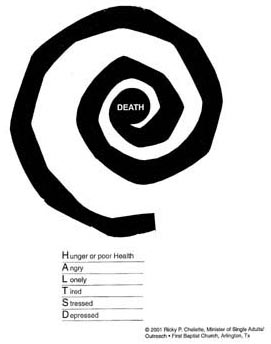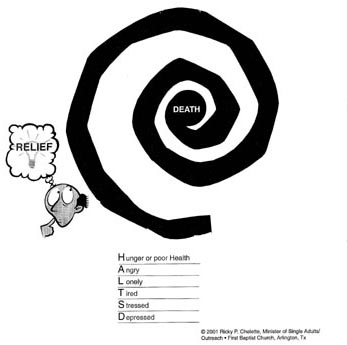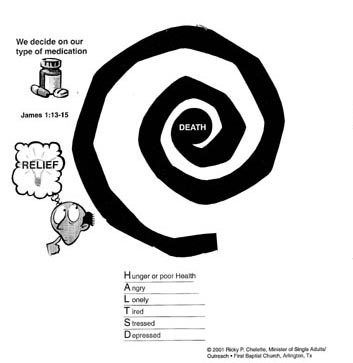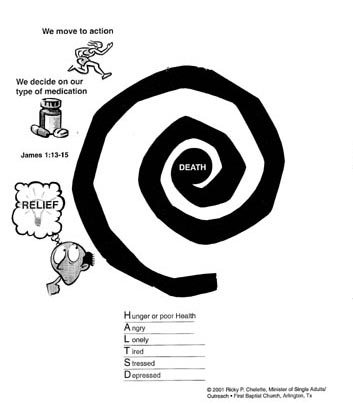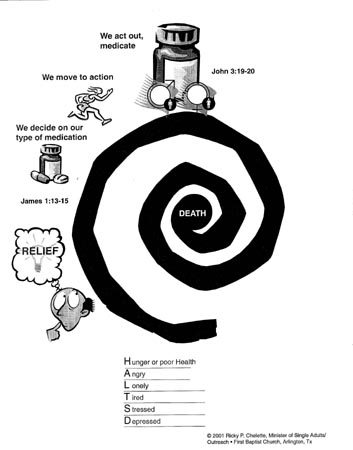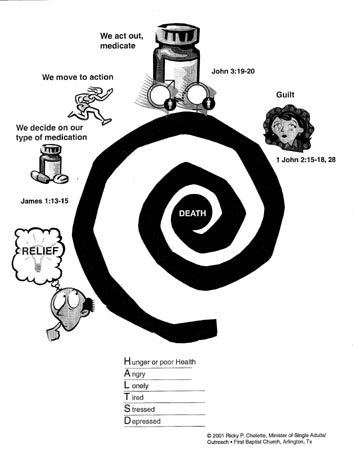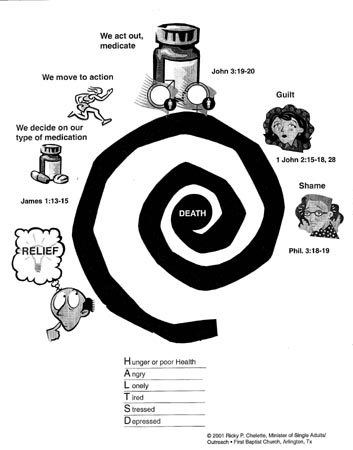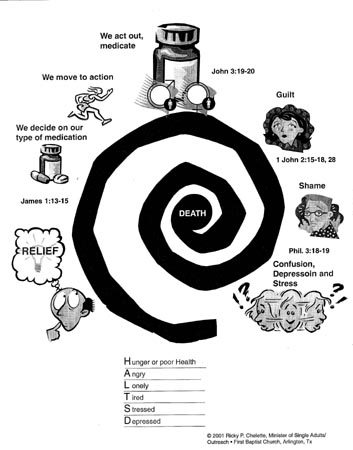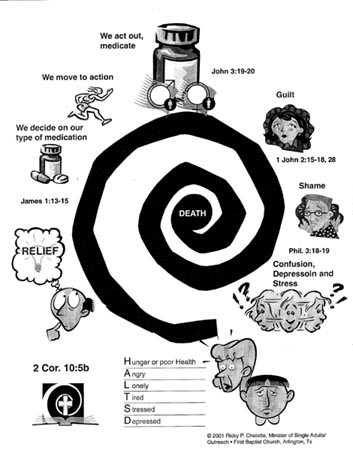I was raised into a liberal, and yet Protestant family. As a child I went to church like any other, and even within the past five years I’ve attended the occasional session. Often people will tell me, “All you have to do is ask God to forgive your sins.”
The problem with this, and one that I’ve seldom been able to ask without feeling alienated, is that within my heart I don’t believe in Jesus. And so even assuming I repented and following the Bible to the word, I wouldn’t have what is called true faith. This is difficult to explain, but while I want to be a part of this religion if it’s real, several parts of it have ill logic. Logic that I can’t convince myself to ignore. Here are some comments and questions that I’d appreciate feedback on.
1. If Christianity is such a good thing, then why has it caused so much death in the past? The Crusades are only one example.
2. When the world is so full of grey, then how can there be a strict set of guidelines that clearly defines right and wrong? If you follow these rules, you’ll go to Heaven where everything’s inexplicably perfect. If you don’t, then you burn in eternal fire. It all sounds a little stretched to me.
3. I’ve been to sermons, and it’s emphasized there that if you don’t stay true to His word, then you’ll burn in Hell. Doesn’t it feel a little selfish to be praying and worshiping a supreme being specifically so that you aren’t punished forever? In a few scriptures, there’s an implication that you must be concerned with anything but yourself. An oxymoron?
4. Gay people are often criticized for their actions in the world, especially by Christians. I have homosexual friends, and several of them take to it rather naturally. Being hetero myself, I could never have sexual relations with another man and like it. I find it highly unlikely that something like this could be anything but real. Especially given the constant state of harrassment that many of them live in.
5. I’ve never felt the presence of Jesus Christ in my life. I went to church for years, and the closest thing to divineness for me was hearing women mumble in what I heard as jibberish. Ultimately I would like to believe, but at this point I have absolutely no reason to.
On the other hand, I’m going to tell you why I can’t let myself shake the idea that there is no immortal entity.
Christianity has had such a huge influence on so many of the past. The United States of America was founded upon this religion. It’s grown to have countless followers now. I inquire to myself, “How could they all have it wrong?”
There are plenty of creative freethinkers who’ve enveloped themselves deeply into your faith. John Fitzgerald Kennedy, Adolf Hitler (his own perception of it anyway), etc.
Sometimes when I’m thinking about life and how I got here, I become increasingly afraid of what’ll happen when I finally die. Possibly because deep down, I know that there’s something I need to fulfill that I’ve yet to. Whether this is knowing God or something else, I have no idea at this point. I’m hoping that you might have some insight to my questions.
I was raised into a liberal, and yet Protestant family. As a child I went to church like any other, and even within the past five years I’ve attended the occasional session. Often people will tell me “All you have to do is ask God to forgive your sins.”
Sounds like a rather simplistic formula, doesn’t it? And there’s something in your intellect that rebels that surely, something must be missing. And you would be right.
Because true, biblical Christianity is about a personal relationship with a personal God. It’s about two beings communicating with each other, and loving each other. It’s more than a simple “forgiveness transaction.” There are a lot of people who see God as some kind of cosmic vending machine; we put in our coin of “belief” and out comes forgiveness? How hokey is that?>
The problem with this, and one that I’ve seldom been able to ask without feeling alienated, is that within my heart I don’t believe in Jesus. And so even assuming I repented and following the Bible to the word, I wouldn’t have what is called true faith. </em
I honor you for your intellectual integrity to admit the truth. You are in good company; there are a lot of people who have come into a personal relationship with God through Jesus, who discovered along their journey that the Jesus they didn’t believe in was a false Jesus—a too-small Jesus. So I am suggesting that you investigate the REAL Jesus and not the stereotype you may have been exposed to.
This is difficult to explain, but while I want to be a part of this religion if it’s real, several parts of it have ill logic. Logic that I can’t convince myself to ignore. Here are some comments and questions that I’d appreciate feedback on.
1. If Christianity is such a good thing, then why has it caused so much death in the past? The Crusades are only one example.
Great question. First, please consider that true Christianity is not a belief system or a religion like the rest of the world religions, but a relationship with Jesus. And every single follower of Jesus is a sinful, fallen, imperfect person who is going to follow Him in varying degrees of sinfulness, fallenness, and imperfection. The validity of Christianity is not the weakness of us Christ-followers, but the strength and truthfulness of Jesus Christ himself.
Many horrible things that were done in the name of Jesus Christ, such as the Inquisition and the excesses of the Crusades, were inflicted by people who were not his followers. Many people have done evil in the name of Jesus, but in the end he will tell them, “Away from me—I never knew you.”
While there are mortifying blots on history, I think it’s also important to realize that people who understand how to view life and the world from a biblical perspective were world changers. The Christian influence is responsible for the invention and development of hospitals and orphanages. Many schools were founded by Christians. The abolition of slavery and the very foundation of modern science are both based on Christian principles. So I think it’s important to see a balance of good and evil, and this is exactly what we would expect from fallen, sinful people trying to live out the principles rooted in the character of a good, loving God.
2. When the world is so full of grey, then how can there be a strict set of guidelines that clearly defines right and wrong? If you follow these rules, you’ll go to Heaven where everything’s inexplicably perfect. If you don’t, then you burn in eternal fire. It all sounds a little stretched to me.
Let’s visit the “back story” that explains why it is we live in a world so full of grey. The world God originally created was perfect and sinless, but man made a choice that plunged us into shades of murkiness. You’ve probably heard the phrase “the fall of man,” but it truly was a fall of gigantic proportions. One of the things that fell when Adam sinned was our intellect, our reason. We no longer apprehend things correctly or accurately.
When God speaks truth to us, when he communicates his set of guidelines that explain how to make life work according to his design, there is now a problem. Two, actually. First, our fallen intellect doesn’t grasp what he says as well as it would have before the fall. Second, another thing that fell was our will, and we are all rebellious, stiff-necked people who insist on having our own way and being god of our own lives. So between fuzzy minds and rebellious hearts, it can sure seem like the world is full of grey!
Nonetheless, God was never unclear about his intentions for his creation, and he communicated his set of guidelines very clearly. Interestingly, the same set of written-down laws in the Ten Commandments, are also written on the hearts of all people in all places at all times. We all intrinsically know it’s wrong to murder and steal and lie and disrespect God.
The rules are clear—it’s our hearts that want to excuse them and find loopholes to justify our bad behavior.
The thing is, no one can follow the rules. Nobody. If we break one, we’ve broken the set. There isn’t a single person who is good enough to go to heaven. Rebellious, sinful, wayward people (and that is every one of us), left on our own, will enter life as enemies of God and stay what way. If God hadn’t intervened, NO ONE would be in heaven.
But he did.
He reaches out to us and offers us one way, the only way, to have a restored relationship with him. Someone had to pay the penalty for our sins, so he sent Jesus from heaven to live a perfect life, showing us what God is like, and then die on the cross in our place. He was perfect and sinless, so he didn’t die for his own sins—but for ours instead. Three days later God raised him from the dead to give his life back, and it’s that new, resurrected kind of life Jesus offers to those who trust in him.
Heaven isn’t a reward for those who did “good enough” to get there, since no one qualifies. It is a place to enjoy an intimate personal relationship with God. A relationship that is entered into as a gift we don’t earn and never could.
Hell isn’t the place where people go who didn’t do enough good to cancel out their bad. When people have spent their life saying “no” to God (and “yes” to doing life their own way, worshiping themselves, or others, or things), it’s where God lets them have their own rebellious way forever.
3. I’ve been to sermons, and it’s emphasized there that if you don’t stay true to His word, then you’ll burn in Hell. Doesn’t it feel a little selfish to be praying and worshiping a supreme being specifically so that you aren’t punished forever? In a few scriptures, there’s an implication that you must be concerned with anything but yourself. An oxymoron?
All of us here at Probe would disagree with those sermons. There are many people who believe God puts people on a performance standard, requiring us to stay on “the straight and narrow” or we get zapped. It not only overestimates our ability to be good, since we are fallen people, but it underestimates God’s ability to hold onto us. When we receive his gift of eternal life by trusting in what Christ did for us, God gives us a new heart and a new source of power to live a life pleasing to him. But He also understands that change is a process and a journey, and as the Bible says, “He knows that we are but dust.” He knows how incredibly frail and weak we are. Good thing he is strong and powerful, not to mention amazingly loving! The Bible actually says that we can KNOW we have eternal life, and that God will complete what he starts. We disagree strongly that what God gets started in us, we have the power to wreck forever.
The Bible says that our relationship with God is like that of a lover and his bride. We are God’s beloved, and he delights in us. I don’t know if you are married, but I hope if you are, you know what it is for your beloved to have adoring eyes for you. That’s the kind of love we receive from God, and when one is loved like that, it’s easy and natural to love him back and worship him with joy and surrender.
The idea of praying to and worshiping a supreme being for the sole purpose of avoiding eternal punishment is a cruel hoax and a horrible counterfeit of the real thing. Which is why I suggest you find out who the REAL Jesus is, since apparently the one you’ve been hearing about is a gross caricature.
4. Gay people are often criticized for their actions in the world, especially by Christians. I have homosexual friends, and several of them take to it rather naturally. Being hetero myself, I could never have sexual relations with another man and like it. I find it highly unlikely that something like this could be anything but real. Especially given the constant state of harrassment that many of them live in.
Their attractions are real, but not chosen. What is not real is the contention that they were born gay, or that God made them gay. There are certain patterns that show up in the lives of those who experience same-sex attractions: a relational deficit with the same-sex parent and with same-sex peers, a sense of gender insecurity, often the ridicule and rejection of peers. Everyone is created with the need to connect in a deep and lasting way with our same-sex parent and peers, and if that need goes unmet, it can become sexualized with the onset of adolescence. Everybody wants to be loved and accepted, but those who are attracted to those of their same sex didn’t get the kind of affirmation that would have allowed them to move on to the next step of emotional development, which is connection with the opposite sex.
5. I’ve never felt the presence of Jesus Christ in my life. I went to church for years, and the closest thing to divineness for me was hearing women mumble in what I heard as jibberish. Ultimately I would like to believe, but at this point I have absolutely no reason to.
I can well imagine why, given what you have experienced and were taught!
I want to recommend to you a couple of books I think you will find satisfying and challenging. Lee Strobel is a former journalist (he used to be a reporter for the Chicago Tribune) and atheist, who tracked down credible sources to answer his questions about Jesus and Christianity. The Case for Faith and The Case for Christ are both really excellent books. A third book, Mere Christianity by C.S. Lewis, would also probably appeal to you.
On the other hand, I’m going to tell you why I can’t let myself shake the idea that there is no immortal entity.
Christianity has had such a huge influence on so many of the past. The United States of America was founded upon this religion. It’s grown to have countless followers now. I inquire to myself, “How could they all have it wrong?”
There are plenty of creative freethinkers who’ve enveloped themselves deeply into your faith. John Fitzgerald Kennedy, Adolf Hitler (his own perception of it anyway), etc.
Sometimes when I’m thinking about life and how I got here, I become increasingly afraid of what’ll happen when I finally die. Possibly because deep down, I know that there’s something I need to fulfill that I’ve yet to. Whether this is knowing God or something else, I have no idea at this point. I’m hoping that you might have some insight to my questions.
The Bible intriguingly says in one place, “God has set eternity in our hearts.” I think this is what you’re experiencing, ______. God made you for a purpose, and he made you to have a relationship with him that is more deeply satisfying than you could possibly imagine. But first you need to find the true God and not the little-bitty false god that is worth rejecting.
I truly respect your position and your intellectual integrity, and I am so glad there are real answers for your important questions.
I do hope this helps.
Sue Bohlin
Probe Ministries
© 2005 Probe Ministries
 I would like to suggest a different book you can read in an hour or so but the application at the end could last several years. The book is Bruce Wilkinson’s Secrets of the Vine. It’s an exposition of John 15 that outlines four stages to a believers life: (1) little fruit, (2) no fruit due to discipline brought on by sin, (3) pruning to produce more fruit, and (4) full abiding. My suspicion is that you are desiring a fully abiding relationship with your Lord, and Wilkinson’s description of his own crisis and his solution will be enlightening and empowering to you.
I would like to suggest a different book you can read in an hour or so but the application at the end could last several years. The book is Bruce Wilkinson’s Secrets of the Vine. It’s an exposition of John 15 that outlines four stages to a believers life: (1) little fruit, (2) no fruit due to discipline brought on by sin, (3) pruning to produce more fruit, and (4) full abiding. My suspicion is that you are desiring a fully abiding relationship with your Lord, and Wilkinson’s description of his own crisis and his solution will be enlightening and empowering to you.